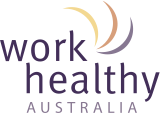
A strong early intervention system helps reduce injury rates and WorkCover claims over time .
In high-risk manual handling industries, the cost of workplace injuries extends far beyond WorkCover claims – it affects workforce stability, productivity, and morale.
Ararat Meat Exports, a major employer in Western Victoria, recognised these challenges and took decisive action. Faced with escalating injury rates, inconsistent return-to-work outcomes, and administrative strain, the company implemented a comprehensive onsite injury prevention and early intervention program, with remarkable results.

This case study outlines how Ararat Meat Exports partnered with Work Healthy Australia to implement a strategic, onsite early intervention model that has transformed their approach to health and safety – delivering measurable benefits for injury management, operational efficiency, and employee wellbeing.
Before: Complex, time consuming and costly
Prior to adopting an onsite model, the company faced a range of challenges, commonly experienced across manual handling industries:
- Inconsistent communication with external treating practitioners.
- No formal structure for managing light duties, resulting in lost productivity.
- Increasing WorkCover premiums and administrative burden associated with claims management.
- High numbers of workers presenting certificates of capacity without prior notification of injury.
- Difficulty distinguishing between work-related and non-work-related injuries.
“There was no real process or structure. We were just making it work as best we could with the solutions we had at the time,” said Bill Drummond, HR and OHS Manager at Ararat Meat Exports.
A diverse workforce – including casuals, migrant workers, and visa holders – added complexity, with many employees reluctant to report injuries early for fear of lost income.
Now: Consolidated, structured and measurable
Recognising the need for a more strategic approach, Ararat Meat Exports implemented a comprehensive onsite health model featuring:
- Pre-employment Screens to establish baseline capabilities.
- Task Analysis to objectively document physical role demands.
- Regular onsite treatment for both work and non-work injuries.
- Structured triage, early intervention, and tailored work hardening support.
- Comprehensive injury reporting and benchmarking to drive continuous improvement.
Since embedding early intervention and onsite clinical services, Ararat Meat Exports has achieved:
- A significant reduction in new injuries progressing to formal WorkCover claims.
- Increased rates of early injury reporting and intervention.
- Stronger employee trust and transparency around injury management.
- More effective matching of suitable duties, enhancing both recovery and productivity.
- Lower injury management costs and improved operational resilience.
- Greater identification and management of pre-existing conditions.
We have had no new physical injuries that have gone to claim since implementing onsite treatment.
Elisha Reid, HR Manager at Ararat Meat Exports
Importantly, the shift away from ad hoc light duties towards meaningful, tailored tasks has delivered benefits for both the business and its workers.
“Previously, we could have had 10 employees on light duties at once, often doing jobs that didn’t provide any real benefit. Now, they are performing meaningful tasks and contributing effectively,” Reid explained.

Building a proactive safety culture
The availability of onsite support, regardless of whether injuries are work-related, has fostered a culture of trust and early disclosure.
“There’s now a sense of trust and support. Workers are much more upfront. They know they will be looked after and that treatment is available without cost, even if the injury happened outside of work,” said Drummond.
Live clinical feedback has enabled real-time task adjustments, preventing minor issues from escalating into serious injuries.
“For me, the live feedback from the clinicians is invaluable,” Drummond said. “It allows us to make immediate changes to protect our workers.”
The onsite program also reinforced the importance of addressing psychosocial risks, particularly among migrant and PALM Scheme workers with limited exposure to workplace health services.
“Our onsite clinicians have helped bridge the gap, providing support not just for physical health, but also for mental wellbeing,” Reid noted.
There’s now a sense of trust and support. Workers know they will be looked after and that treatment is available without cost, even if the injury happened outside of work.
Bill Drummond, HR and OHS Manager at Ararat Meat Exports.
Strengthening claims management
Beyond injury prevention, the investment in Task Analysis, injury documentation, and onsite clinical notes has strengthened Ararat Meat Exports’ ability to defend and manage claims.
“Having accurate documentation and role videos allows us to present a clear picture of job demands, supporting better outcomes with treating practitioners and insurance claims,” Reid said.
A sustainable future
With measurable reductions in injury rates, stronger engagement, and improved claims outcomes, Ararat Meat Exports remains committed to evolving its early intervention and workplace health strategies.
“Our injury rates are down, our claims are under control, and our workforce is healthier, more engaged, and more supported than ever before,” Drummond concluded.
Our injury rates are down, our claims are under control, and our workforce is healthier, more engaged, and more supported than ever before.
Bill Drummond, HR and OHS Manager at Ararat Meat Exports.
Don’t wait for a claim to act
Work Healthy Australia partners with organisations across Australia to provide onsite injury prevention and early treatment services,
Explore how onsite early intervention protects your people and your bottom line.
Sign up to our monthly enewsletter
"*" indicates required fields
